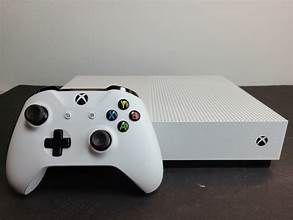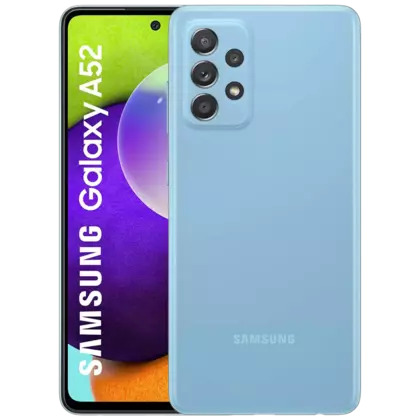The Bottom Line
“ADHD” stands for “attention deficit hyperactivity disorder”. It is defined by impulsivity, hyperactivity and a lack of ability to control anger, remain focused, or stay on top of tasks. Treatment is based on treatment with behavioral therapy as well as medication therapy. ADHD medications may have negative consequences. An intentional overdose of any magnitude is an emergency medical condition that needs immediate care.
What is ADHD?
“ADHD” stands for “attention deficit hyperactivity disorder”. Children (and adults) who suffer from this disorder have different signs, such as hyperactivity, impulsivity, and a lack of ability to concentrate on their requirements, manage stress, stay focused, or remain at the top of their game. The behavior of these children is a cause for concern at home, in school and various situations. This is why they may require help in learning despite having average intelligence. Treatment is based on behavior therapy and medications.
Recently, it was reported that The American Academy of Pediatrics (AAP) advised that pediatricians check children as young as four years old when they show symptoms that might suggest ADHD. Before that, the primary focus was on older children.
buy adderall online is a disorder that can be found in the body and is believed to be a genetic condition, at the very minimum, in a few. The symptoms and signs arise from altering the functions of certain brain chemicals (neurotransmitters) such as Dopamine and Norepinephrine. Treatment for this condition focuses on the activities of neurotransmitters.
Drugs for ADHD
The medications that are used for treating ADHD are categorized into two groups that are stimulation and not.
The stimulant drugs are amphetamine and methylphenidate. Brand names commonly employed include Adderall(r), Ritalin(r), Dexedrine(r), Vyvanse(r), Focalin(r), Metadate(r), Concerta(r) as well as Daytrana(r) (skin patches).
Non-stimulant medicines consist of Atomoxetine (Strattera(r)) along with Guanfacine (Tenex(r), Intuniv(r)) and Clonidine (Catapres(r)), which are prescribed in some cases for treating ADHD; however, they are not approved by the FDA for this condition.
Short-acting formulations are effective for only a couple of hours. Extended-release formulations last longer, for example, throughout the entire school day. They are available in different dosage strengths. A small amount is typically first administered, followed by an increase as needed. People react differently to other drugs. Therefore, it’s possible to employ trial and error to develop an appropriate treatment program. Confident children require multiple ADHD medications to treat their symptoms. Children may be prescribed medication to treat other mental health issues when undergoing therapy for ADHD.
The correct drug(s) will effectively manage ADHD symptoms. But, like every other medication, ADHD drugs can cause adverse effects.
The most commonly reported adverse reactions of stimulant drugs are loss of appetite, stomach pain, nausea and difficulty sleeping. The effects typically fade over time. The timing of the dose will reduce the impact of certain substances. Children might experience a slightly more rapid heart rate and increased blood pressure. Some children make less great a leap, but it’s usually only temporary.
There are reports of negative impacts on the heart. This is just one of the many reasons their doctors must monitor children closely. A recent study of ADHD medication discovered “no evidence” that using an ADHD medication can increase the risk of a child suffering heart attacks, strokes or sudden cardiac death.
Atomoxetine can cause drowsiness, stomach discomfort, and decreased appetite. These adverse effects are likely to fall as time goes by. Children taking this medication require tests to check their blood for the liver’s working. Occasionally, kids taking this drug are thought to be at risk of suicide. This isn’t common but is something to be considered when monitoring.
Guanfacine, as well as clonidine, may be used to reduce blood pressure in adults. Children taking these medications to treat buying adderall online must be checked to check blood pressure. These drugs can cause an increase in fatigue, agitation and even nervousness.
The overdose of ADHD medication
If a person has an overdose, its consequences depend on the substance, dose, the fact that they are on the medication and whether other drugs were taken. A child who has consumed his drug of low dose twice might be treated without needing treatment. However, if the tablets have a lot of medications at the beginning, the two quantities may be too much. This is especially true when a child is on medicine from a parent. A low dose may be okay. However, a higher amount could require intervention.
A high school or college student taking an acquaintance’s medication could have adverse reactions based on the dosage and substance. It isn’t advised to take a different medication! The “normal” dose could cause adverse reactions or interact with other medicines.
A deliberate overdose of any magnitude needs immediate medical care. Call 1-800-222-1222 to speak with poison specialists even when the patient appears healthy.
Utilizing ADHD medications is secure ADHD medication.
Preschoolers: Certain adderall online medications are FDA-approved to be used by children from a young age. To make sure you don’t overdose.
Replace the cap to ensure children’s safety following medication administration.
The bottle must be kept high and away from children’s sight.
The child must be taught that it is medicine and not an indulgence. Children should only receive it from their parents or caregivers.
Check the label before you start giving the medication at least once.
When more than one person is administering the medication to a child, develop an arrangement to stop the child from getting two doses.
Elementary school children:
Parents and adult caregivers should offer children medicine. Children should only be allowed to use medication once their parents are sure that their child can safely use drugs.
Secure medicines between doses. Children younger than middle school age have offered ADHD medication to their classmates and their friends




